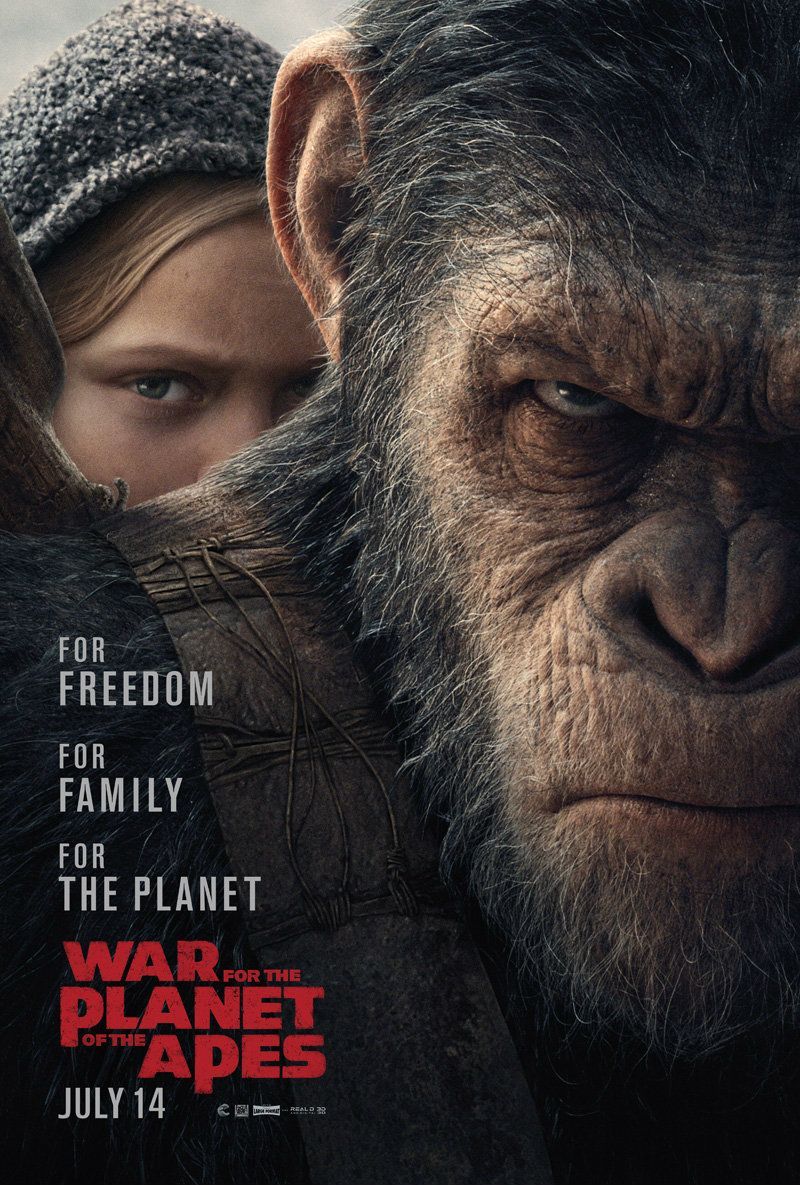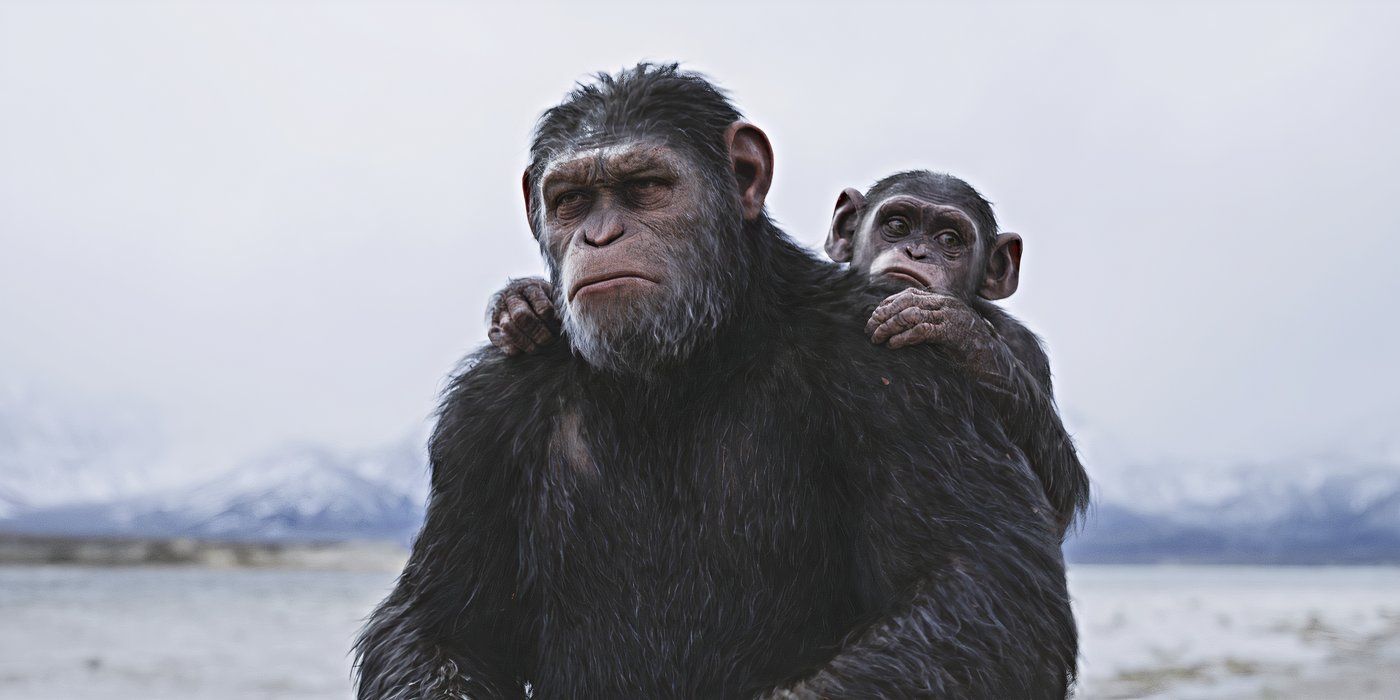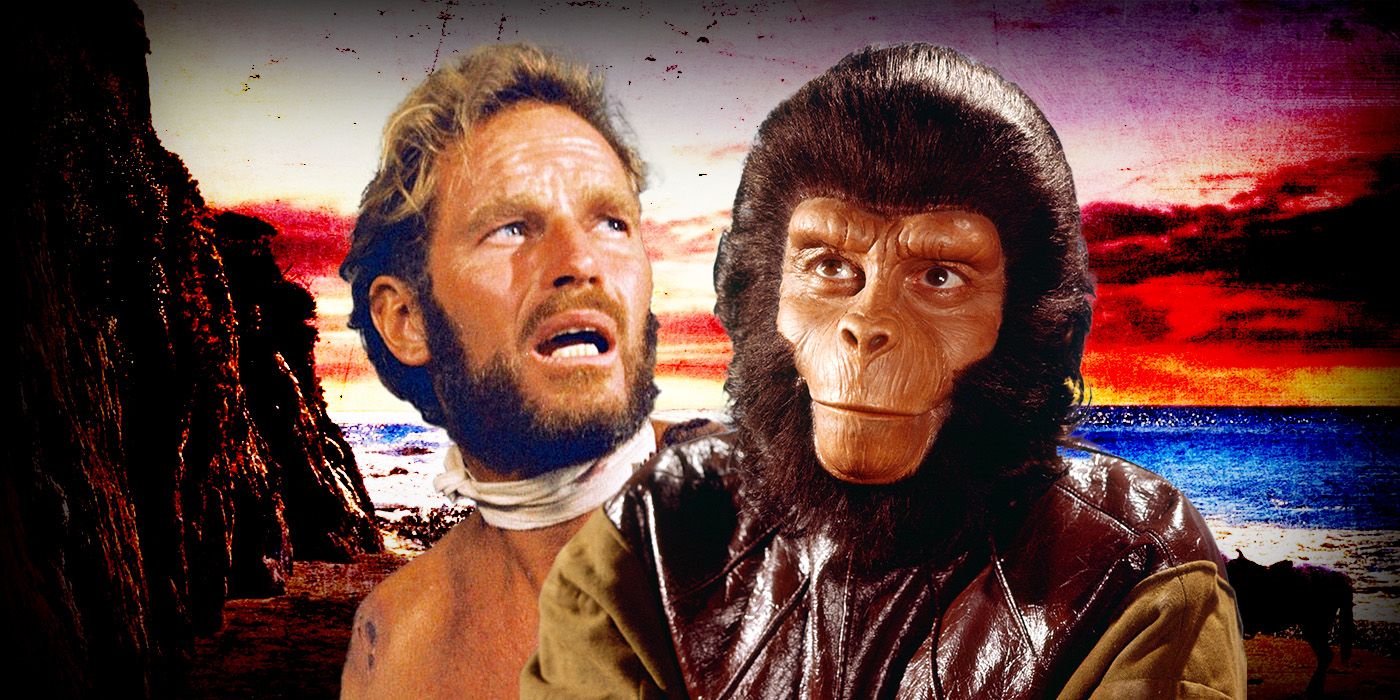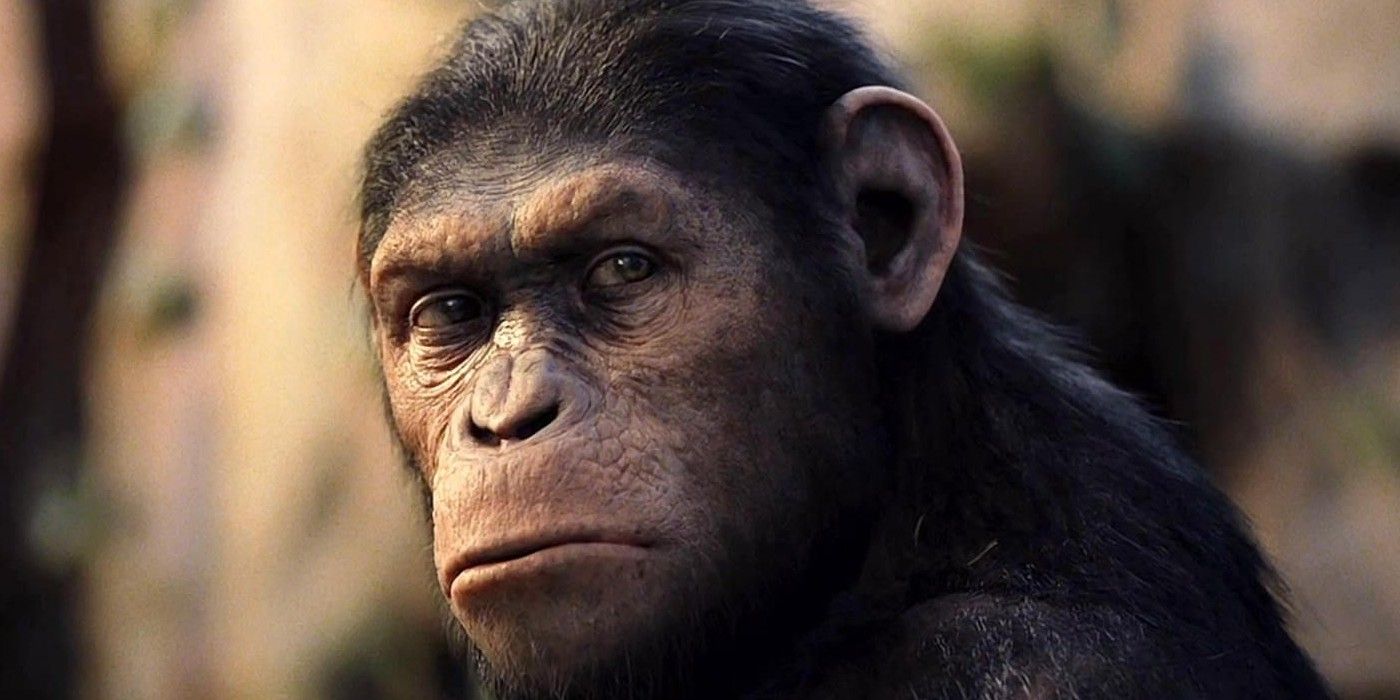The Big Picture
- Caesar's death marks the end of the Caesar Trilogy, with his journey shown to have real growth and importance.
- The connection between the new Planet of the Apes franchise and the original series is loose, and there's room to tell new stories.
- War for the Planet of the Apes sets the stage for future films by showing the hope for peaceful coexistence between humans and apes, driving the franchise forward.
War for the Planet of the Apes is a conclusion. It may not be the ending for the franchise, but it’s definitely the end of the Caesar Trilogy as Caesar (Andy Serkis) dies from his wounds after leading his people to a promised land. It’s a touching, moving finale that shows there’s room for real growth and stakes. More importantly, it shows that Caesar’s journey mattered. He was the central figure of the rebooted Planet of the Apes franchise, and War for the Planet of the Apes shows him not just as the first smart ape, but also as the leader capable of forging a new civilization. With the recent release of the series' newest installment, Kingdom of the Planet of the Apes, let's recap what happened in the previous film.

War for the Planet of the Apes
In the midst of a relentless war between humans and apes, Caesar leads his people with wisdom and empathy, hoping to find a peaceful resolution. However, when a merciless Colonel orchestrates a devastating attack on the apes, Caesar is consumed by a desire for revenge. Accompanied by a small group of loyal followers, he sets out on a mission to confront the Colonel and end the conflict. As Caesar faces intense battles and moral dilemmas, he must balance his thirst for vengeance with his duty to ensure the survival of his species. The story culminates in a dramatic showdown that will shape the future of both apes and humans.
- Release Date
- July 14, 2017
- Director
- Matt Reeves
- Cast
- Judy Greer , Steve Zahn , Mercedes de la Zerda , Max Lloyd-Jones , Woody Harrelson , Alessandro Juliani , Amiah Miller , Terry Notary , Andy Serkis , Aleks Paunovic , Ty Olsson , Devyn Dalton , Gabriel Chavarria
- Runtime
- 140 Minutes
- Main Genre
- Sci-Fi
Why Can't Humans Speak in 'War for the Planet of the Apes'?
Where some viewers may be confused about War for the Planet of the Apes is in the conclusion, setting up a possible tie to the original Planet of the Apes movie. The biggest tell here is Nova (Amiah Miller), who shares her name with Linda Harrison’s character from the 1968 original. Additionally, Nova, like Harrison’s character and the other humans in the original movie, can’t speak, which is why Astronaut George Taylor (Charlton Heston), who can talk, is so remarkable to the ruling apes. While the original Planet of the Apes never explains why humans lost the ability to speak, War shows that it’s a mutation of the original virus, the Simian Flu, which killed off a large portion of humanity following the events of Rise of the Planet of the Apes. So, with Nova and a human populace that’s likely to become re-infected with the new mutation of the Simian Flu, that must mean that War connects to Planet, right? Not really.
First off, there’s the fact that we would have to disregard Rise being a straight reboot. In the original Planet of the Apes saga, the Apes rise up because they’re led by Caesar (Roddy McDowall) in Conquest of the Planet of the Apes. Caesar is the child of Cornelius (also McDowall) and Zira (Kim Hunter), who traveled back in time in Escape from the Planet of the Apes after the planet was destroyed at the end of Beneath the Planet of the Apes (this franchise rules). Rise presents an entirely new timeline where Caesar is the offspring of Bright Eyes, a chimpanzee given a drug to test a cure for Alzheimer’s Disease. Bright Eyes has increased intelligence from the drug, and that intelligence is passed on to her son, Caesar.
When Does 'War for the Planet of the Apes' Take Place?
The original Planet of the Apes takes place in the year 3978, so while the events of Rise, set in 2011, would help explain why humans can't speak in the original, that is really the only connection with the original series of films, as the dates alone would make it impossible to draw a correlation otherwise. Dawn of the Planet of the Apes takes place in 2021, and War for the Planet of the Apes takes place in 2023, which, again, makes it highly unlikely that the rebooted franchise would ever make reference to the original. This is a good thing because it leaves future filmmakers the room to branch out and tell new stories rather than be tied to the 1968 film. Yes, War does show humanity losing its ability to speak, but it also shows that coexistence is possible as Nova is accepted into Caesar’s tribe.
War's place in the timeline is fascinating, in that it covers that touchstone moment where the script is flipped and humanity is, definitively, no longer the dominant species, with their regression allowing the apes to rise to the top of the evolutionary chain. Dawn covers the days just prior, the feeling out period where humans struggle with the aftermath of the pandemic, and the apes at odds with how to approach humans, complicated by the memories of how they were treated by humans in the recent past still fresh in their minds. Caesar wants to make peace, while Koba (Toby Kebbell) wants vengeance, and it's Koba's actions that force Caesar's hand when it comes to the events of War.
How Does Caesar Die in 'War for the Planet of the Apes'?
War for the Planet of the Apes ends with Caesar, having successfully led his colony to their new oasis home, succumbing to the gunshot wound he received earlier, with Maurice (Karin Konoval) promising that Caesar's son Cornelius (Devyn Dalton) will know what his father did for the apes before Caesar passes away. Kingdom of the Planet of the Apes picks up shortly after Caesar's death, with the colony surrounding Caesar's body on a funeral pyre and honoring him as the fire is lit, sending their leader to the afterlife. The movie then jumps ahead 300 years later, where humans have become more feral and apes have developed clans and the villages they live in.
'War for the Planet of the Apes' Sets the Stage Going Forward
Maurice's promise at the end of War for the Planet of the Apes may have been kept, but somewhere between the events of War and Kingdom his message was lost, and few even know of him. In the newest installment, apes and humans have grown even further apart, and it isn't until Noa (Owen Teague) meets Raka (Peter Macon) that he even learns about Caesar, whose teachings and hopes were once kept alive by a handful, but now only Raka. But with Noa now having learned that which had been lost for so long, the message of War — the hope of peaceful coexistence between man and ape — lives on and drives the franchise forward. As we learn in Kingdom of the Planet of the Apes, humans are starting to rise again, meaning that the franchise from here on will have to address how, and even if, man and ape can coexist, much sooner than later. It's the journey promised by War for the Planet of the Apes, and the franchise has become that much more intriguing because of it.
War for the Planet of the Apes is available to stream in the U.S. on Max





